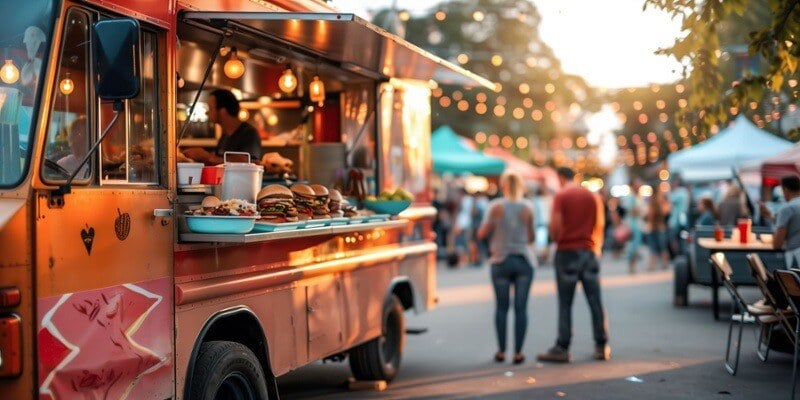Essential Checklist for Food Truck Vendors at the Minnesota State Fair
by Brothers Fire & Security | Aug 8, 2024 | Food Trucks, Minnesota State Fair | 0 comments

The Minnesota State Fair is a whirlwind of sights, sounds, and, of course, mouth-watering treats! For food truck vendors, it's a prime opportunity to showcase your culinary creations to a massive and hungry audience.
But before you dive into the fair frenzy, Brothers Fire & Security wants to ensure your food truck is prepared for a fire-safe and successful event. Here's your ultimate pre-fair checklist to make sure your food truck is up to code and ready to roll.
MN State Fair Food Truck Checklist
1. Inspections
- Inspection: Schedule a comprehensive inspection to get your truck certified and tagged. This ensures safety and boosts your credibility among fair organizers and patrons.
2. Food License
- Vendor License: Obtain the necessary food vendor license from the Minnesota Department of Health (MDH) or your local health department. This ensures you're meeting all food safety standards, from food handling to preparation.
3. State Fair Vendor Permit
- Fair-Specific Permit: Secure the specific vendor permit required by the Minnesota State Fair management. This permit is crucial for participation and ensures you've met all the fair's operational guidelines.
4. Fire Extinguisher
- Extinguisher Type: Ensure you have a properly charged fire extinguisher with the appropriate rating for your type of cooking. Although Class K extinguishers were once common, it's now recommended to use K-Guard extinguishers in mobile kitchens.
- Training: Confirm that all your employees completed basic fire extinguisher training. Knowing how to use a fire extinguisher can be crucial in an emergency. Arrange for training sessions if necessary.
- Mounting: Make sure your fire extinguisher has a secure and easily accessible mount for quick retrieval during an emergency.
5. Electrical Safety
- Inspection: Have a qualified electrician inspect your truck's electrical wiring and appliances. This ensures they are in good working order and free of any potential hazards, reducing the risk of electrical fires. This can be done during an annual inspection, too.
- Safe Practices: Use heavy-duty, outdoor-rated extension cords and check for any damage regularly.
6. Gas Line Safety
- Propane Systems: If your truck uses propane for cooking, ensure all gas lines and connections are leak-free and properly secured. Schedule a professional inspection for peace of mind.
- Leak Detection: Invest in a propane leak detector for continuous monitoring during operations.
7. Fire Suppression System
- Hood Suppression: If your food truck has a commercial cooking hood, make sure it has an operational fire suppression system. Ensure it has been inspected and tagged within the last six months. This system is your first line of defense against kitchen fires.
8. No Smoking Signage
- Signage: Clearly post "No Smoking" signs throughout your truck to prevent accidental ignition. These signs should be easily visible to both staff and customers.
9. First-Aid Kit
- Preparation: Obtain a well-stocked first aid kit for minor injuries. Include items like bandages, antiseptic wipes, burn cream, and a first-aid manual.
- Accessibility: Ensure the kit is easily accessible and all staff know its location.
10. Fire Escape Plan
- Escape Plan: Develop a fire escape plan for your employees. This plan should include clear steps for evacuation and a designated meeting point outside the truck in case of an emergency.
- Drills: Conduct regular fire drills to ensure all staff are familiar with the escape plan.
By following this checklist and partnering with Brothers Fire & Security for fire safety inspections and extinguisher services, you can ensure a smooth and fire-free Minnesota State Fair experience! Contact us today, and let's get your food truck ready to roll!
Recent Posts
- Hidden Risks: Why Aging Fire Systems Need More Than Just Annual Inspections
- Strategic Security Camera Placement: Maximizing Protection Through Integration
- Why NFPA 72 Makes Integrated Fire & Security Monitoring Systems Essential
- Benefits of a Building Access Control System
- Ultimate Guide to Fire Extinguishers: Testing, Inspections, Maintenance

